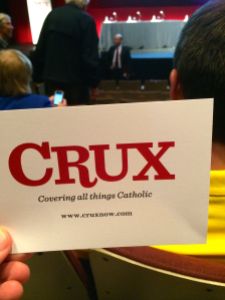Update II: The Globe’s own story cites problems at the Taunton printing plant, so it looks like my speculation may have been on target: “But his [Franklin’s] tenure also saw continued press problems at the newspaper’s new Taunton printing facility, which has been a vexing and expensive headache for a media organization fighting to become financially self-sufficient in an era of declining print advertising. The printing problems pre-date Franklin, who started on Jan. 1.” Pre-date? It was only recently that the Globe began using the Taunton facility exclusively.
Updating: Vinay Mehra, the chief financial officer of Politico and a former executive at WGBH, will become the president and chief financial officer of Boston Globe Media, according to a memo to the staff from publisher and owner John Henry. Henry also says that he and his wife, managing partner Linda Pizzuti Henry, plan to take a more active role. No word on whether a new CEO will be named. The full text:
You’ve seen Doug’s note that he plans to leave the Globe. First, I’m very grateful for Doug’s hard work on behalf of this organization at an especially complex and sensitive time — as we moved from our decades-long home in Dorchester to Exchange Place and Taunton. These are not easy jobs in this industry, and Doug did his with passion, impact, and commitment. We wish Doug well in what will undoubtedly be successful endeavors in the future.
Second, effective immediately, Vinay Mehra will become the president and chief financial officer of the Globe. Vinay has distinguished himself at every stop along his career, most recently at Politico, where he was an active CFO with a strong grasp of the entire business and a commitment to a journalism enterprise supported by novel revenue streams. His prior work at WGBH gave him important insights into the Boston region, where he has always lived while commuting to Washington, and an understanding of the Globe’s vital role in New England.
Third, I will be a more active publisher and Linda will take on more responsibility as we push for financial sustainability in an environment that is extraordinarily challenging for news organizations dedicated to communities where facts and context matter.
This is a great and important news organization, one that is positioned for many more decades of success.
Best,
John
Doug we hardly knew ye. Last December, Boston Globe Media named veteran newspaper executive Doug Franklin as chief executive officer to replace Mike Sheehan, who was leaving after three years in charge. Now Franklin is leaving, citing “differences” with owner John Henry over “how to strategically achieve our financial sustainability.”
At this early stage I have no idea what went wrong. I will point out that the Globe has been sending out frequent emails apologizing for late delivery of the print edition since shifting from its old Morrissey Boulevard headquarters to a new plant in Taunton — but I can’t say I know whether that has anything to do with Franklin’s departure.
Here is Franklin’s memo to the staff, two copies of which arrived in my inbox from my sources within the past few minutes.
Globe Team,
You are part of a very special institution in New England, and everyone here should be honored to serve our readers, advertisers, and broader community through our journalism and business offerings. While John Henry and I share similar passion and vision for the Globe, we have our differences how to strategically achieve our financial sustainability. With disappointment, I am resigning from the Globe, effective immediately, and will not be part of your work shaping the Globe’s future.
There are many great things about the Globe and equally many challenges in the industry. Our business will continue to reshape itself, with some areas getting smaller and more efficient while we invest in new technology and products for our future.
I hope that over the past six months I have provided some clarity, honesty and realistic optimism of what you are capable of accomplishing in the coming years. I have truly appreciated the support and our partnership during the brief period in which I was privileged in getting to know you and your work.
I took on this role because I love the newspaper industry, cherish our First Amendment obligations, and value the role of the Globe in the Boston region. It was a big challenge, but I also believed it was a good fit, given my record of successfully turning around newspapers. The Globe is one of the best brands, best newsrooms and most loyal reader subscription businesses in the country. Hard work is ahead for all of you and I know you will successfully navigate the challenges. I wish you the best and thank you.
Doug Franklin
CEO
Correction: This post has been updated to clarify Vinay Mehra’s new position at the Globe.


